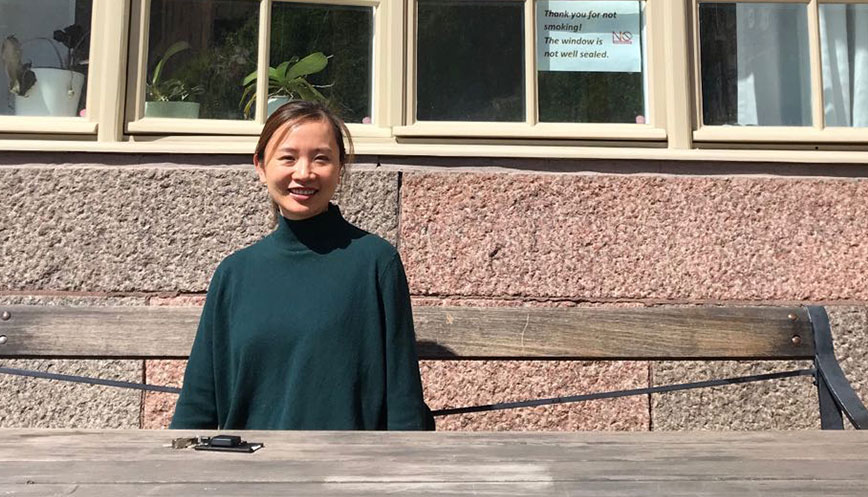Ruoli Wang new assistant professor in biomechanics

In June 2020, Ruoli Wang was appointed assistant professor at the Division of Human movement biomechanics/Department of Biomechanics/SCI school. She specialises in medical imaging, wearable sensors, experimental assessment, and varied computational approaches within the field of biomechanics, which help to understand better and quantitively assess the neuro-mechanical interplay in people affected by motor and movement disorders.
Ruoli Wang, what are your research area, research interests, research methods, and application area?
"I work with medical imaging, wearable sensors, experimental assessment and varied computational approaches within the field of biomechanics, which help to understand better and quantitively assess the neuro-mechanical interplay in people affected by motor and movement disorders. The ultimate goal is to develop a clinically friendly rehabilitation platform which can provide patient-centred rehabilitation strategies.
What do you think are the large research challenges in your research area and why?
"One of the biggest challenges is to translate the technologies we developed in a highly equipped research lab to an actual clinical setting and even to the home environment. The accurate and personalised assessment often requires expensive and delicate instruments with high demands on computational resources."
If you are looking for some research collaborator(s), what competence are you looking for?
"I am looking for expertise in flexible electronics who develop multifunctional skin sensors or software engineers interested in developing human-machine interfaces. I am also open to participating in larger national and international research consortia."
Can you tell us more about one of your research results and why you picked it?
"One of my current projects, funded by Digital Futures, aims to develop the digital twins of the personalised human neuromusculoskeletal system by integrating the latest developments in wearable sensors, personalised neuromusculoskeletal modelling, innovative biomass-based printable electronics, and simultaneous 3D ultrasound imaging.
The project scientists collaborate closely with material scientists developing biomass-based multifunctional skin sensors (ultrasonic electrodes). The breakthrough feature of integrating these ultrasound transparent electrodes and fully wearable sensors (such as inertial measurement units and pressure insoles) into the digital twins’ framework opens a new window in real-time monitoring and supervision in personalised rehabilitation."
Lastly, what do you like with Sweden, Stockholm and KTH?
"I have been living in Stockholm for more than 15 years. Stockholm is a beautiful and comfortable city to live with families. The encouragement and social support system for females is particularly intriguing. As a young female faculty and mother of two young daughters, I am very thankful to be able to accompany their growth without giving up my scientific dreams. KTH is an exciting workplace with high internationalisation and diversity in research topics. The working environment is very pleasant with good encouraging colleagues and bosses."
